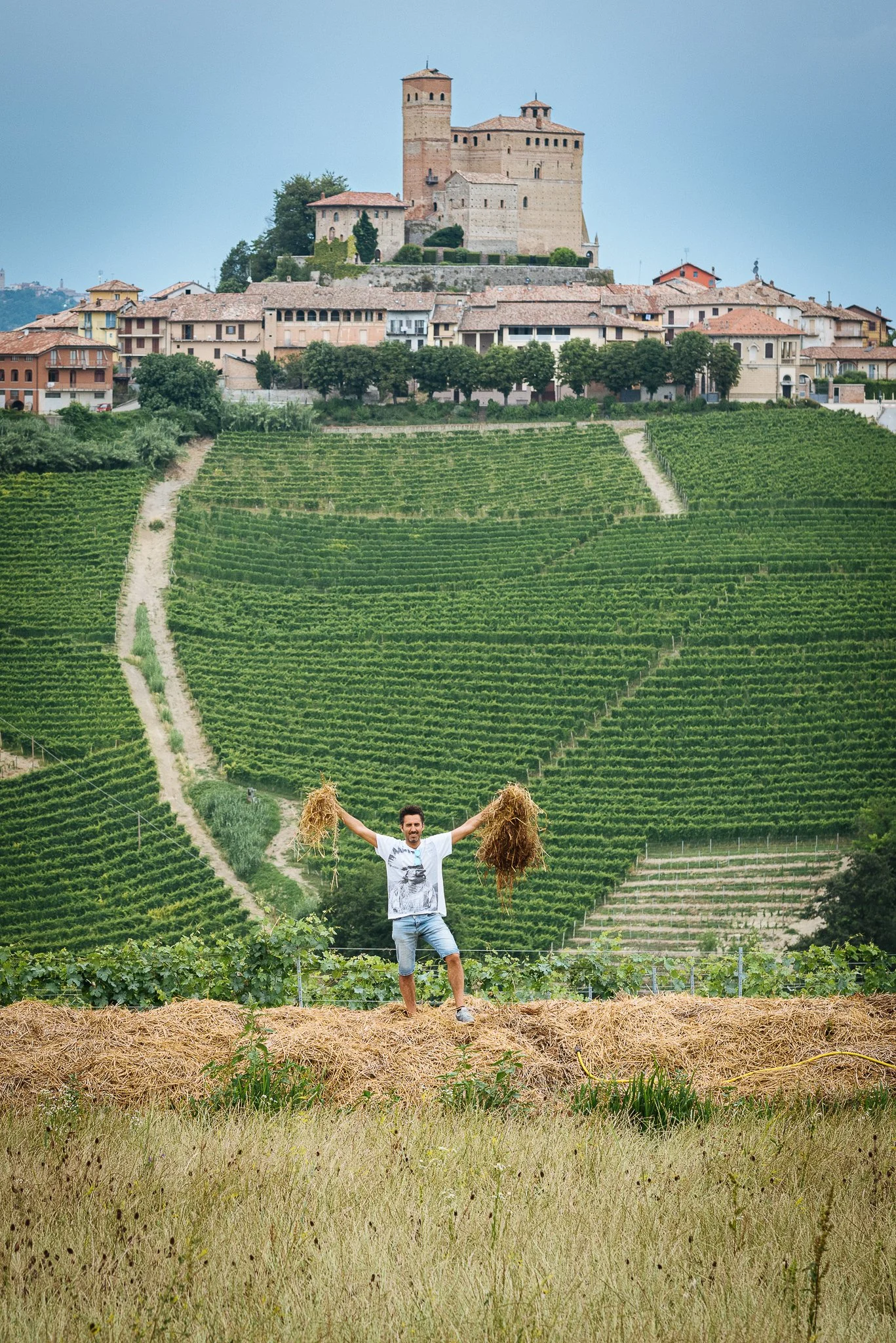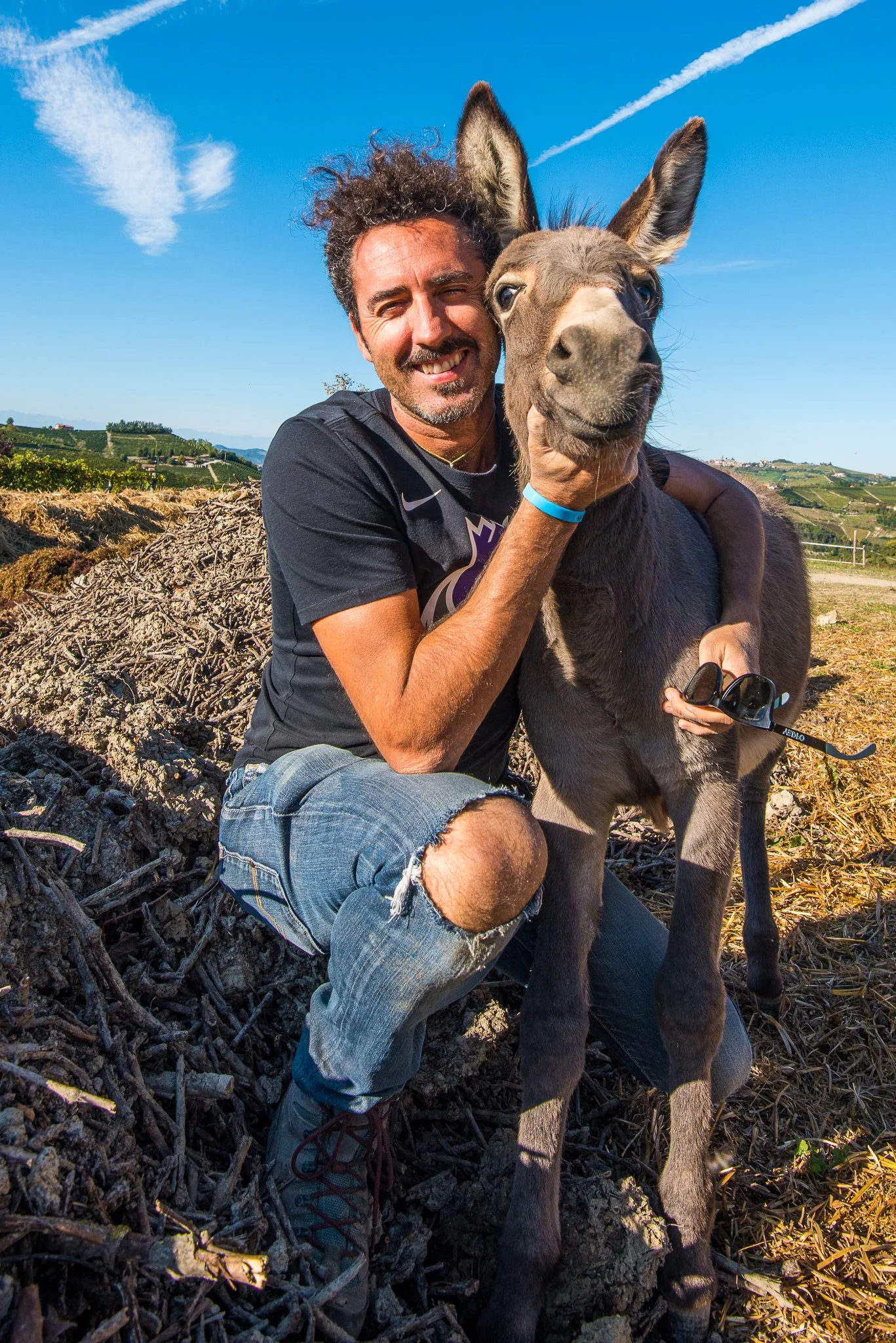Enrico Rivetto: Biodynamic pioneer in Barolo
Image credit: Rivetto
Biodiversity in Barolo
What significance do donkeys, bees, and buried cow horns have as an important part of winemaking? The biodynamically certified winery Rivetto, located in the heart of Piedmont, provides some of the answers.
Rivetto’s focus is not to produce as much wine as possible, but rather on creating a distinct balance in everything they do, thereby creating the best conditions for crafting the best wines possible.
From Monoculture to Biodiversity
Just like people thrive when in a form of inner balance, the same applies to vineyards. According to Enrico Rivetto, head winemaker at the estate, monoculture depletes the soil’s vitality, promotes disease, and reduces biodiversity. Which is why, in 2009, he began the transition to organic farming on the estate, and in 2015 fully implemented biodynamic principles – making Rivetto the first biodynamically certified winery in all of Piedmont.
“Biodiversity in my vineyard is extremely important. We are right in the middle of the Barolo region, where vineyards are everywhere. When I started this project, the first step was to diversify the estate. ”
Image credit: Rivetto
Over the past ten years, Enrico has planted more than 1,000 trees and established kilometers of ecological corridors with lavender, sage, rosemary, fruit trees, oaks, birches, and other vegetation around the vineyards to protect them from the influence of neighboring vineyards.
Between the vine rows, flowers and herbs are sown to support healthy insect life and contribute to a natural ecosystem – where the donkeys: Filippa, Giulia, and Lella help keep weeds under control, while their manure is used for compost.
An Ecosystem in Balance
Rivetto’s philosophy is about restoring a healthy balance between vineyards and other crops to create a resilient agricultural ecosystem. As part of this effort, six beehives have been established to further strengthen biodiversity.
Enrico believes that biodynamics is the best method for achieving living soil. Amongst the natural processes the winery employs are the use of estate-produced compost. After two years of fermentation, the compost is added to the soil, strengthening the vines and making them more resistant to climate change. Rivetto is in Serralunga, which is among the coldest corners of Barolo. Climate change now causes grapes to ripen faster, while the increasingly intense sunlight also demands new approaches in the vineyard.
Sponsored banner from Kjaer & sommerfeldt
Image credit: Rivetto
“ After the Second World War, much of Europe’s soil was depleted. Our goal is to rebuild the soil’s microorganisms and make it more fertile. Biodynamics helps us achieve this by focusing on our own compost production, increasing biodiversity, and avoiding toxins in the vineyards.”
Nothing at Rivetto is left to chance; every step is planned with a biodynamic balance in mind. The results can be tasted in the wines of the estate, crafted primarily with Barbera and Nebbiolo. Wines where purity, elegance, and finesse come together in a style that stands out within Barolo.




